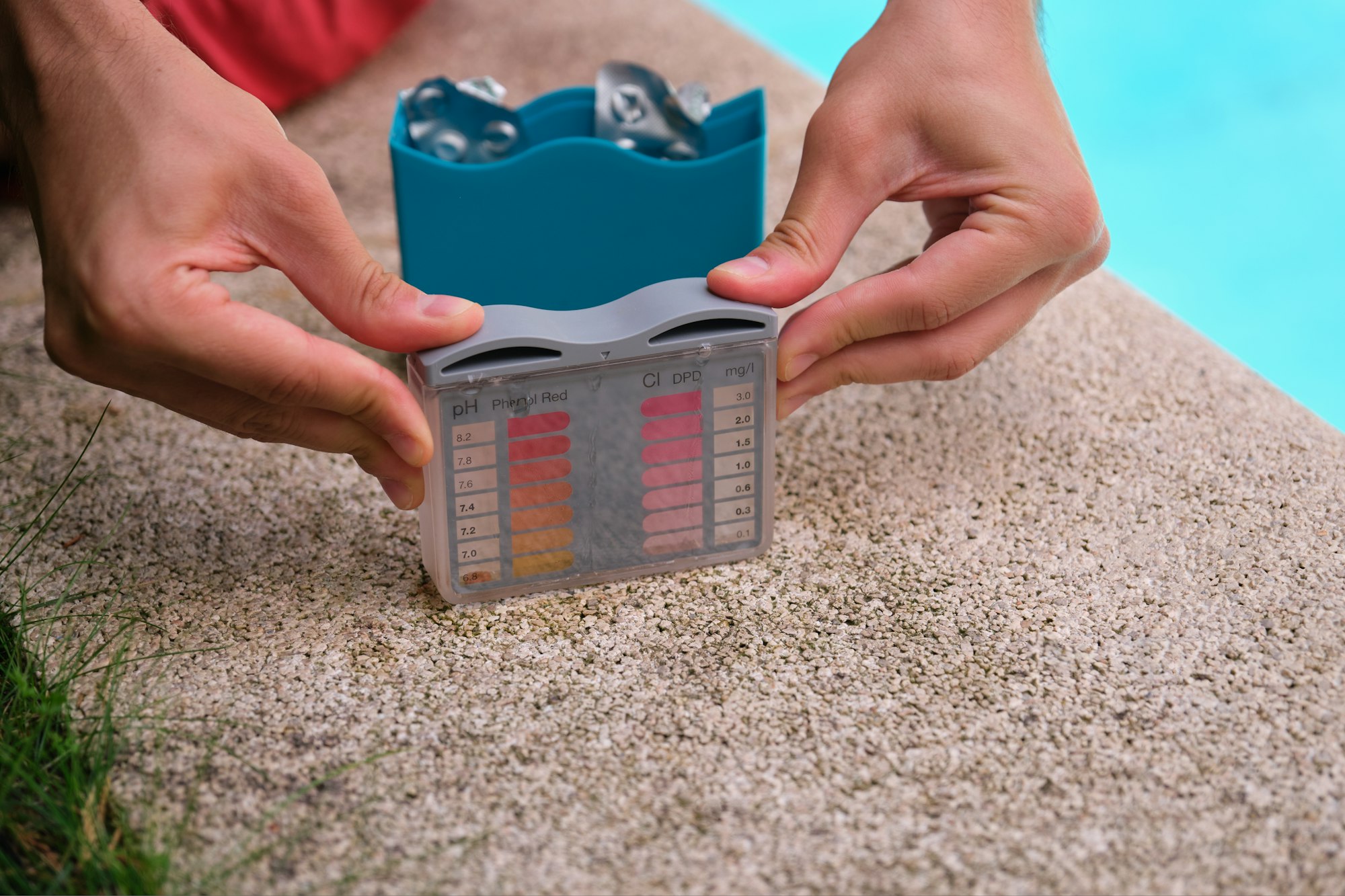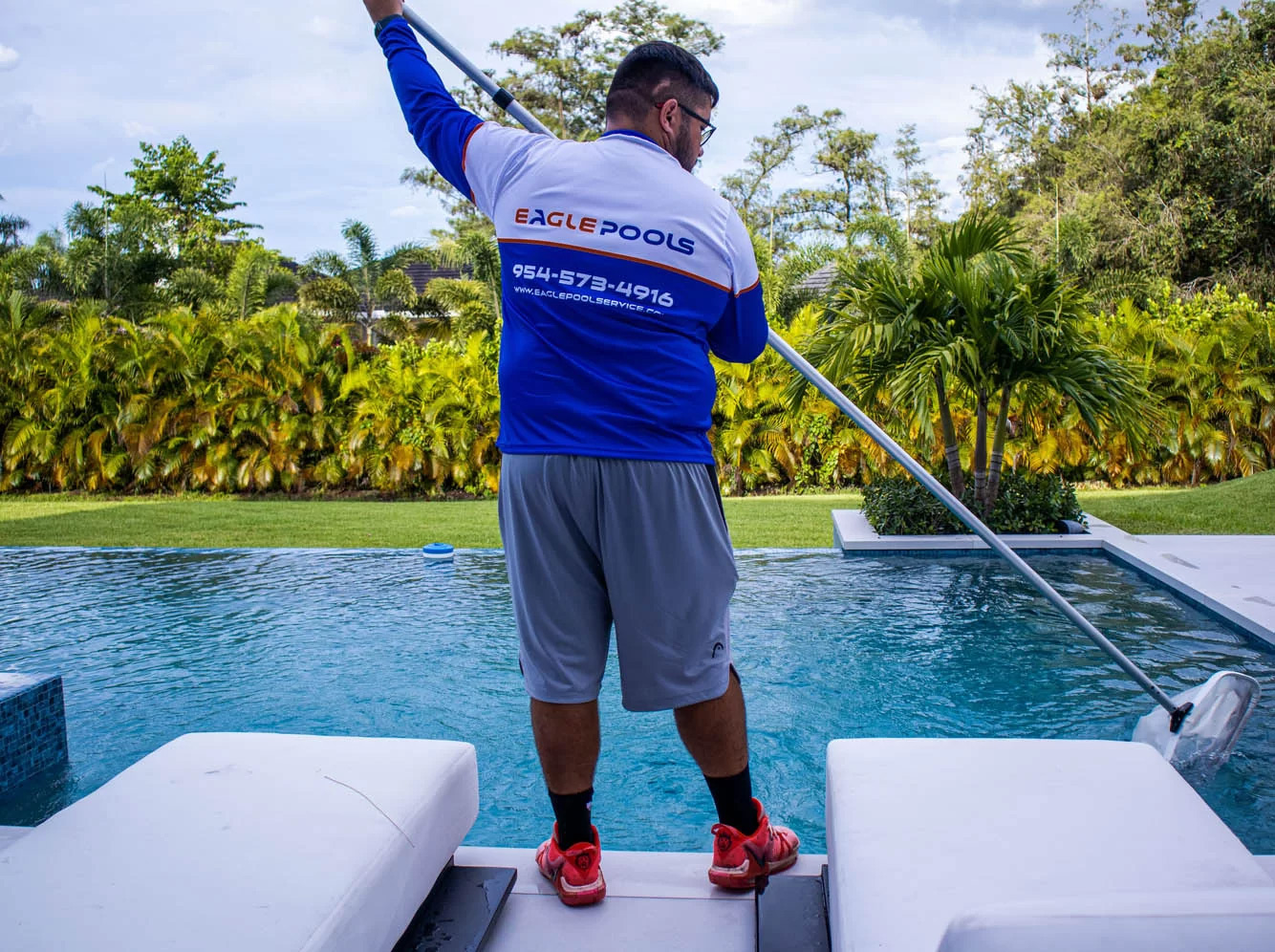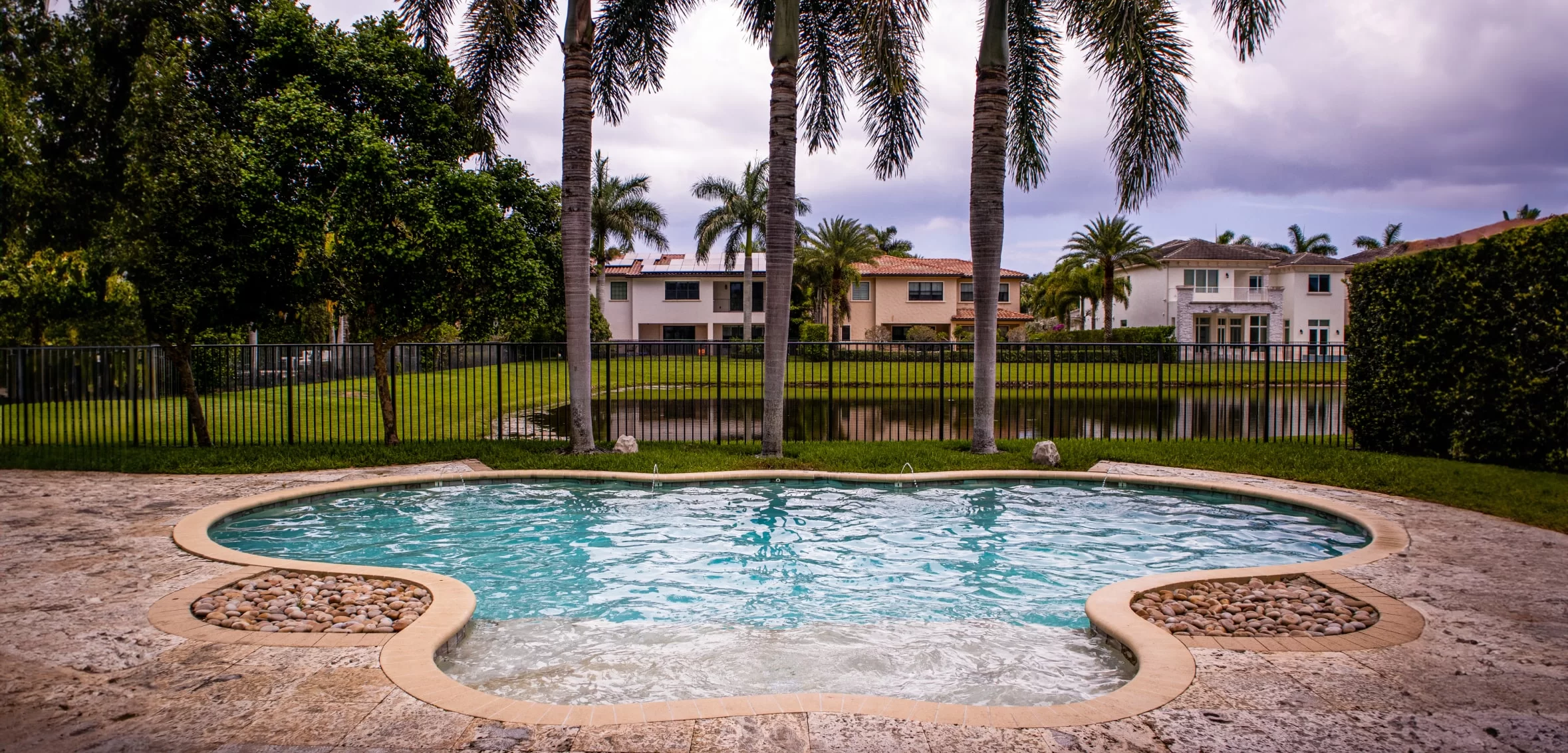The water in your pool needs to be within a certain pH range. That’s the measure of the acidity or alkalinity of the water. If it’s too far one way or the other, it can be unsafe for swimmers.
There are a number of ways to measure the pool water’s pH. The most common is probably still litmus paper, just like you used in chemistry class back in school. You simply dip a strip of litmus paper into the water and then compare the color it turns to a chart provided with the testing kit.
But today there are also mechanical testers that can give a faster and more accurate reading of the water’s pH balance.
pH Balance
If your pool’s pH balance is too high or too low, it can cause a number of problems including stains or scales to form on the pool’s surfaces, corrosion of metals on the rails and inside pool equipment, and cloudy or discolored water.
Unbalanced pH can even cause health problems for people swimming in the pool, such as skin rashes and eye irritation.
However the most common problem with unbalanced pH is that it dramatically decreases the ability of the chlorine in the pool’s water to do its job. This can quickly make your pool unsafe and unsanitary.
Eagle Pools
At Eagle Pools, our experienced pool technicians will test your water’s pH balance and make the necessary adjustments so that you never have to worry about it becoming a problem.
We have the equipment, skill, and experience to make sure your pool water is not only clean and clear but also always safe for you and your family. When you want to enjoy your pool without having to worry about its safety, choose Eagle Pools, South Florida’s experienced pool professionals for more than a decade.





